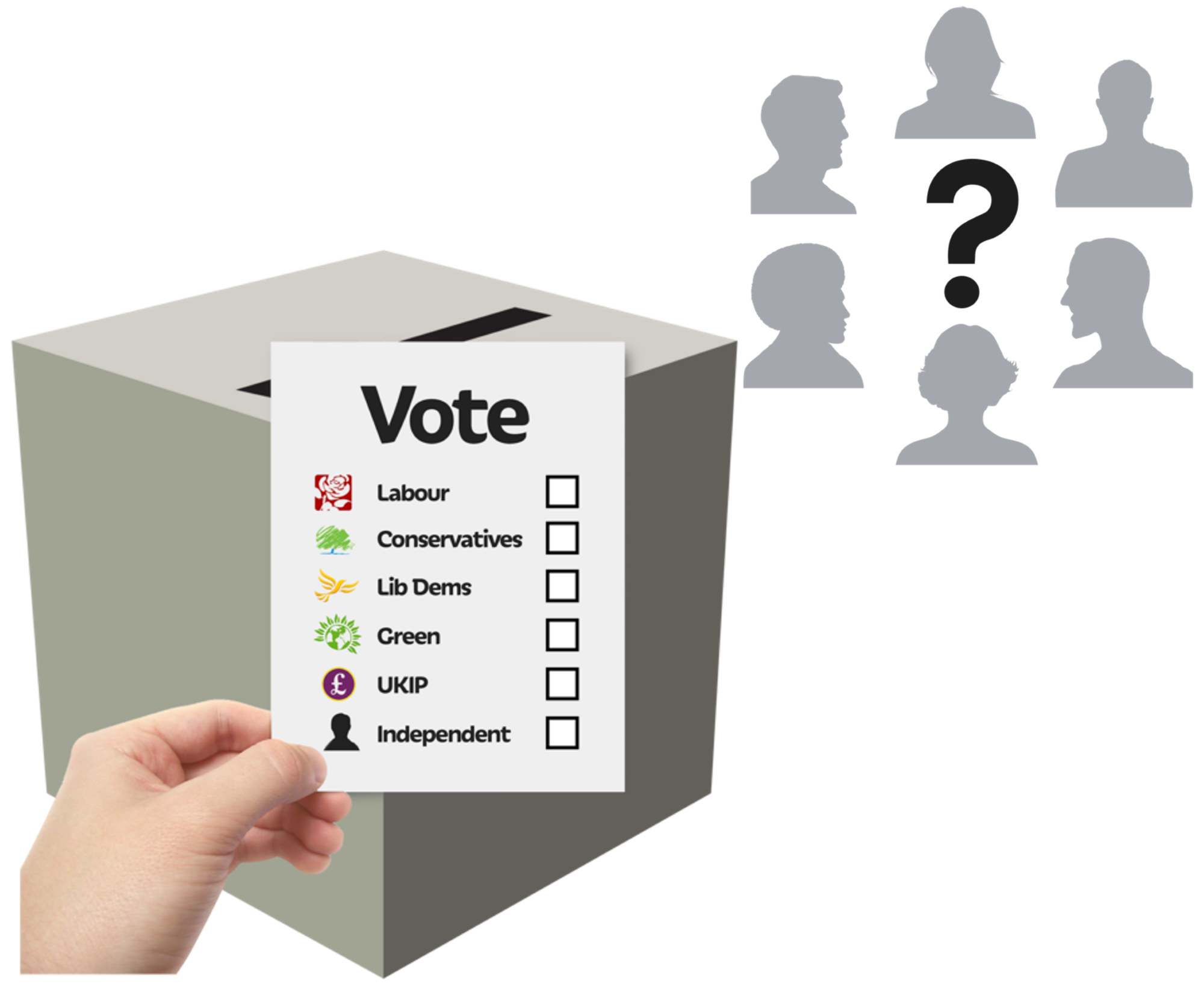On Friday 13 March Jeremy Hunt, MP for South West Surrey, took questions from school children with a
learning disability
 A learning disability is to do with the way someone's brain works. It makes it harder for someone to learn, understand or do things.
as part of Mencap’s Hear my voice
campaign
A learning disability is to do with the way someone's brain works. It makes it harder for someone to learn, understand or do things.
as part of Mencap’s Hear my voice
campaign
 A campaign is when people work together to try to change something.
.
A campaign is when people work together to try to change something.
.
St. Bartholomew’s School, a mainstream school in Haslemere, saw Jeremy Hunt take questions both from children at St Bartholomew’s and two other schools that cater for children with special educational needs, The Abbey and The Ridgeway.
Ahead of the upcoming general
election
 An election is when people choose who should be in charge of something. This could be in charge of a group, an area, or the country. People choose by voting. The person with the most votes wins.
on 7 May, Jeremy Hunt spoke of the importance that politicians listen to all sections of society ahead of the 7 May General
Election
An election is when people choose who should be in charge of something. This could be in charge of a group, an area, or the country. People choose by voting. The person with the most votes wins.
on 7 May, Jeremy Hunt spoke of the importance that politicians listen to all sections of society ahead of the 7 May General
Election
 An election is when people choose who should be in charge of something. This could be in charge of a group, an area, or the country. People choose by voting. The person with the most votes wins.
.
An election is when people choose who should be in charge of something. This could be in charge of a group, an area, or the country. People choose by voting. The person with the most votes wins.
.
Mr Hunt recently signed Mencap’s Hear My Voice campaign which aims to empower people with a learning disability and their families to have their voices heard by their local MPs and candidates and has so far engaged over 70,000 people with a learning disability, their families and carers ahead of the 2015 General Election.
Hear My Voice is a grassroots campaign and this event was organised by Surrey resident Toby Barnard, who is also fundraising for Mencap by running 6 marathons in 6 days across the Sahara Desert – dubbed the toughest footrace on earth.
Toby previously worked within learning and development during his time in the Royal Navy. After returning from periods in Iraq and Afghanistan he wanted to help raise funds and awareness for people with a learning disability and has been a tireless campaigner for Mencap since.
Toby Barnard, who arranged the Hear My Voice event and is running the Marathon Des Sables for Mencap said:
“I’m fortunate enough to have learnt a lot about learning disability and the inequalities people face in their everyday lives through my fundraising for Mencap. However there’s a long way to go to change people’s attitudes and key to this is for politicians to understand the issues faced by people with a learning disability and to listen to their voices. “I can’t thank Mr Hunt enough for attending today and taking questions from the children. Hopefully this will inspire the next generation of voters to get involved with the political process and breakdown negative perceptions of learning disability”
Jeremy Hunt, MP for South West Surrey, said:
‘‘I was delighted to support Mencap’s Hear My Voice campaign within my constituency and meet with the students and answer their questions. Mencap plays a very important role nationally and locally working with and on behalf of people with a learning disability. This campaign is a clear example of what the charity can achieve for people who have as much right as anyone to lead their lives, have the same opportunities and be treated with dignity and respect."
Jeremy Hunt was recently joined by all three party leaders in signing up the Hear My Voice campaign to say they are listening to the voices of people with a learning disability.
Through the campaign
website
 A website is a page you can go to on the internet like Google or YouTube.
(www.hear-my-voice.org.uk), people with a learning disability and their families have a space to share their experiences with their local MP and, in return, MPs and candidates can show their support by signing-up to say they are listening.
A website is a page you can go to on the internet like Google or YouTube.
(www.hear-my-voice.org.uk), people with a learning disability and their families have a space to share their experiences with their local MP and, in return, MPs and candidates can show their support by signing-up to say they are listening.
Jan Tregelles, Mencap’s chief executive, said:
“It is encouraging to see so many MPs listening to people with a learning disability and their families about the problems they face and the change they want to see in the next Parliament
Parliament is a group of people who make laws and check what the government
The Government are the people who run the country. The Government decide how much tax people should pay and how things like the National Health Service (NHS) should work. is doing. . They are the experts in what matters to them, so prospective candidates should be listening to what they have to say when they are out on the campaign trail.”
Lord Brian Rix, Mencap President, said:
“There are 1.4 million people in the UK with a learning disability and 6 million more family members and carers connected to them. However they often tell us they feel they are not listened to by politicians and subsequently many of the challenges they face go unheard and unresolved. We are asking Members of Parliament and prospective candidates to listen to what people with a learning disability and their families have to say.”
The campaign has also given rise to a Manifesto, which explores the issues that matter most to people with a learning disability and their families and on which they want to see action from the next UK government. These include improving healthcare for people with a learning disability, ending disability
hate crime
 A hate
crime
A hate
crime
 A crime is when someone does something wrong and breaks the law.
is when someone is hurt or bullied because of things like: their disability or their
religion
A crime is when someone does something wrong and breaks the law.
is when someone is hurt or bullied because of things like: their disability or their
religion
 Religion is to do with the things you believe about the world. For example you may believe there is a god or something else. Examples of religions are Christianity, Hinduism, Islam and Judaism.
.
and improving support in education.
Religion is to do with the things you believe about the world. For example you may believe there is a god or something else. Examples of religions are Christianity, Hinduism, Islam and Judaism.
.
and improving support in education.
To find out more about the Hear my voice campaign and Manifesto, visit: www.hear-my-voice.org.uk
-ENDS-
Notes to editors
About Mencap
There are 1.4 million people with a learning disability in the UK. Mencap works to support people with a learning disability, their families and carers by fighting to change laws, improve services and access to education,
employment
 Employment means having a job.
and
leisure
Employment means having a job.
and
leisure
 Leisure is when you have time to do things you enjoy like playing sports or going to the pub.
facilities.
Leisure is when you have time to do things you enjoy like playing sports or going to the pub.
facilities.
Mencap supports thousands of people with a learning disability to live their lives the way they want.
For advice and information about learning disability and Mencap services in your area, contact Mencap Direct on 0808 808 1111 (9am-5pm, Monday-Friday) or email help@mencap.org.uk
About Mencap’s Hear my voice campaign
People with a learning disability – and the millions of family members, carers and support workers connected to them – can make their voices heard on the issues that matter to them at the 2015 General Election.
Hear my voice is a campaign designed to provide a platform for people with a learning disability and their families to make their voices heard. There are a lot of different ways to get involved, from sharing what matters to you, to holding an event to get people with a learning disability registered to vote. Through grassroots campaigning, Hear my voice will ensure the next Government improves the lives of people with a learning disability.
About learning disability
A learning disability is a reduced intellectual ability, which can cause problems with everyday tasks – for example shopping and cooking, or travelling to new places – which affects someone for their whole life.
People with a learning disability can take longer to learn new things and may need support to develop new skills, understand difficult information and engage with other people. The level of support someone needs is different with every individual. For example, someone with a severe learning disability might need much more support with daily tasks than someone with a mild learning disability.
Learning disability is not a mental illness or a learning difficulty, like
dyslexia
 Dyslexia is a learning difficulty. People who have dyslexia can find it hard to read, write and spell.
. Very often the term ‘learning difficulty’ is wrongly used interchangeably with ‘learning disability’.
Dyslexia is a learning difficulty. People who have dyslexia can find it hard to read, write and spell.
. Very often the term ‘learning difficulty’ is wrongly used interchangeably with ‘learning disability’.